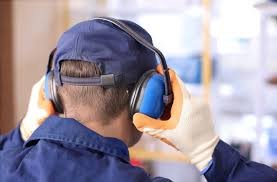Our ears are remarkable sensory organs that allow us to experience the world through hearing sound. However, prolonged exposure to loud noises can lead to hearing loss and other auditory issues. Whether you’re exposed to loud music at concerts, noisy workplaces, or everyday environments, it’s essential to prioritize ear protection to safeguard your hearing health. In this comprehensive guide, we’ll explore a range of ear practical ear protection tips and strategies to help you protect your ears and preserve your precious sense of hearing for years to come.
Understanding Hearing Health: Before diving into ear protection tips, it’s important to understand the basics of ear and its health. Our ears are sensitive instruments designed to detect and process sound waves, converting them into electrical signals that our brains interpret as sound. Prolonged exposure to loud noises can damage the delicate structures of the inner ear, leading to temporary or permanent hearing loss, tinnitus (ringing in the ears), and other auditory issues.
Here are ten potential threats to hearing and ear function:
- Loud Noises: Exposure to loud environments (concerts, construction sites) can cause noise-induced hearing loss over time.
- Ear Infections: Frequent ear infections can lead to temporary or permanent hearing loss, especially in children.
- Earwax Buildup: Excessive earwax can block sound waves, leading to temporary hearing loss and discomfort.
- Aging: Presbycusis, or age-related hearing loss, commonly affects older adults, making it harder to hear high-frequency sounds.
- Ototoxic Medications: Certain medications, including some antibiotics and chemotherapy drugs, can damage the inner ear and affect hearing.
- Head Injuries: Trauma to the head can affect the auditory system and lead to hearing loss.
- Exposure to Water: Chronic exposure to water (swimming, bathing) can lead to swimmer’s ear or other infections that impact hearing.
- Tinnitus: This condition, characterized by ringing or buzzing in the ears, can result from various factors, including noise exposure, and can affect overall hearing function.
- Certain Health Conditions: Conditions like diabetes, cardiovascular disease, and autoimmune disorders can negatively impact hearing.
- Smoking and Alcohol: Both smoking and excessive alcohol consumption have been linked to an increased risk of hearing loss.
Protecting your ears from these threats is essential for maintaining good hearing health!
Essential Ear Protection Tips:
- Use Earplugs: Earplugs are simple yet effective devices that can significantly reduce the intensity of sound entering the ear canal. Whether you’re attending a loud concert, working in a noisy environment, or mowing the lawn, wearing earplugs can help protect your ears from harmful noise levels. Choose high-quality, properly fitted earplugs designed for specific activities and environments.
- Limit Exposure to Loud Noise: Whenever possible, limit your exposure to loud noises by reducing the volume of music, avoiding noisy environments, and taking breaks from noisy activities. Use noise-canceling headphones or earbuds to block out background noise and create a quieter listening environment.
- Maintain a Safe Distance: When attending concerts, sporting events, or other loud gatherings, try to maintain a safe distance from the speakers or other sources of loud noise. Sitting farther away from the sound source can help reduce your overall exposure to high sound levels and lessen the risk of hearing damage.
- Turn Down the Volume: When listening to music through headphones or earbuds, keep the volume at a moderate level and avoid prolonged exposure to high volumes. Follow the “60/60” rule: listen at no more than 60% of the maximum volume for no more than 60 minutes at a time. Consider using volume-limiting settings on your devices to prevent accidental overexposure to loud sounds.
- Wear Protective Gear: In noisy work environments such as construction sites, factories, or airports, wearing appropriate protective gear such as earmuffs or noise-canceling headphones is essential. These devices provide an additional layer of defense against loud noises and help mitigate the risk of ear function damage.
- Take Hearing Breaks: Give your ears regular breaks from exposure to loud noises to allow them time to rest and recover. Incorporate quiet periods into your daily routine, especially after engaging in activities with high noise levels. Use these breaks to relax and give your ears a chance to recover from any accumulated noise exposure.
- Get Regular Hearing Check-ups: Schedule regular ear health checkup with a qualified audiologist or hearing healthcare professional to monitor your ear health and detect any changes or concerns early on. Early detection of ear functional issues allows for timely intervention and treatment, potentially preventing further damage and preserving your ear sensing abilities.
Protecting your ears is essential for preserving your ear health. By following these ear protection tips and integrating them into your daily routine, you can reduce your risk of ear functioning damage and enjoy a lifetime of healthy listening. Remember, your ears are precious sensory organs take proactive steps to protect them and prioritize your hearing health for years to come.
Thanks for visiting Gymbag4u.com
You may also love reading our following articles. gymbag4u.com/check-your-lung-health-simple-steps-for-early-detection/ and The Cardiac Diet: Your Guide to a Heart-Healthy Lifestyle – GymBag4U and gymbag4u.com/how-to-improve-our-eyesight-naturally/ and Essentials tips for Good Eyesight – GymBag4U and https://gymbag4u.com/importance-of-routine-hearing-test-a-comprehensive-guide/
